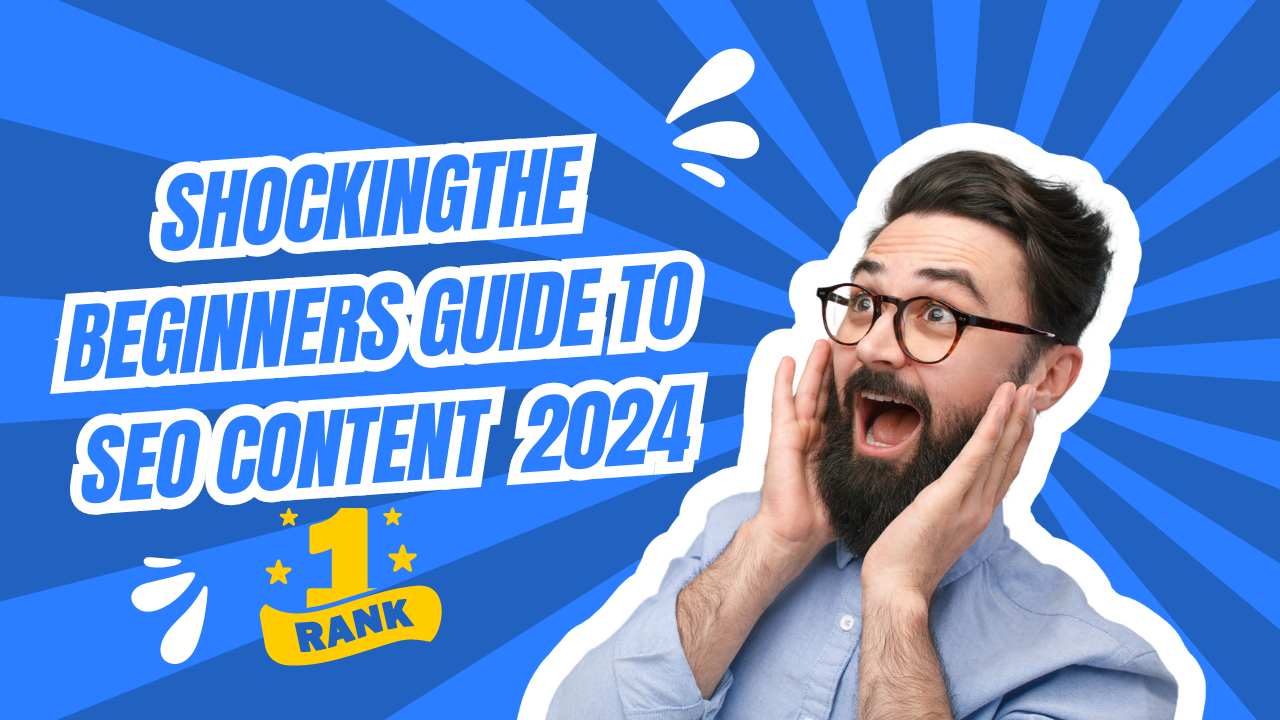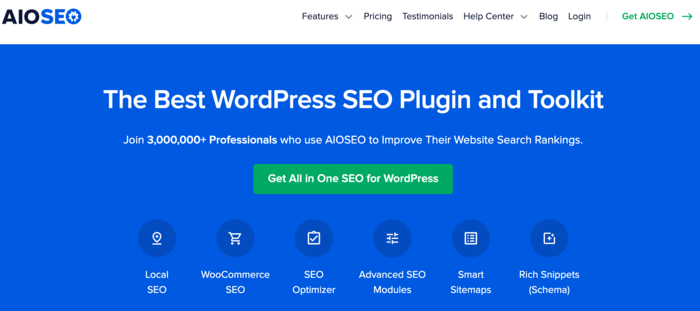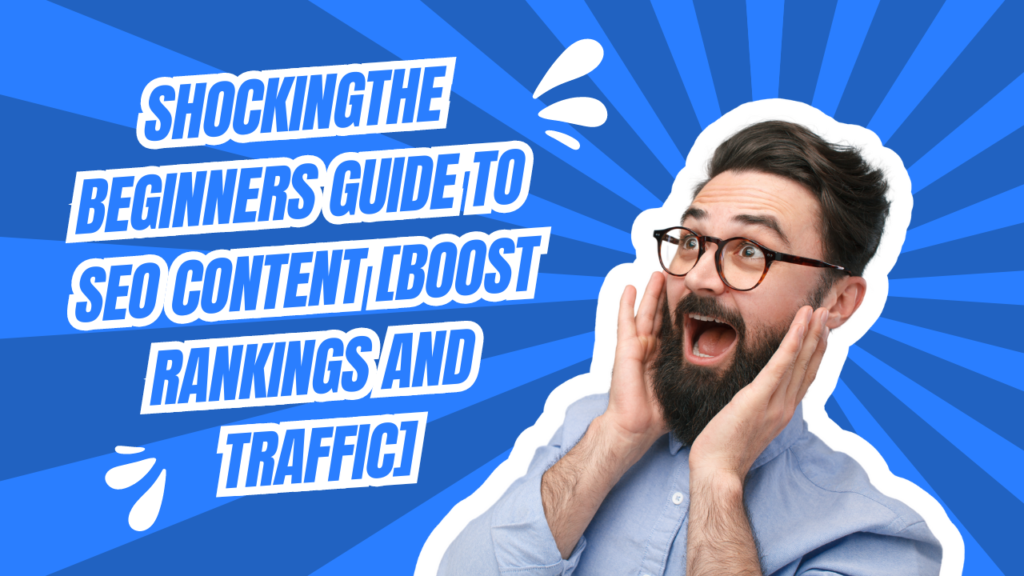
Are you looking to take your website to the next level? SEO (Search Engine Optimization) is the key to increasing your website’s visibility in search engine rankings and attracting a steady stream of targeted traffic. Whether you’re a beginner or already familiar with SEO, this guide will provide you with essential strategies and practical tips to get started. Say goodbye to low traffic and hello to a thriving, high-visibility website!
Unlocking the Power of SEO(The Ultimate Guide to SEO)
In today’s digital world, a strong online presence is crucial for businesses to succeed. With millions of websites competing for attention, SEO helps ensure that your site ranks higher on search engine results pages (SERPs), making it more visible to potential customers. Effective SEO strategies can significantly boost your website’s traffic, improve its credibility, and drive revenue growth.
This guide will cover essential SEO concepts, including on-page and off-page optimization, technical SEO, keyword research, and content strategies to help you maximize your online presence.
What is SEO?
SEO stands for “Search Engine Optimization,” which involves optimizing your website to rank higher in search engine results for relevant keywords. The goal is to attract more organic traffic by making your site easier for search engines to understand and recommend. SEO includes a wide range of techniques such as keyword research, on-page optimization, link building, and technical enhancements.
Why SEO Matters
SEO offers numerous benefits for website owners:
- Increased Visibility: Higher rankings lead to more visibility in search engines, which can result in increased organic traffic.
- Better User Experience: Optimizing your content and design enhances user engagement and reduces bounce rates.
- Long-Term Growth: SEO efforts provide long-lasting results, unlike paid advertising which stops working once you stop paying.
- Cost-Effective Marketing: SEO generates traffic without the need for paid ads, making it a budget-friendly strategy.
How Search Engines Work
Search engines like Google and Bing use bots, also known as crawlers or spiders, to explore the web and index web pages. These crawlers follow links, scan content, and add pages to the search engine’s index, making them searchable. When a user enters a search query, the search engine’s algorithms rank the indexed pages based on various factors, including relevance, content quality, and authority.
The role of SEO is to optimize your site so that search engines can understand your content, rank it higher, and present it to the right audience. Proper SEO ensures that your content appears prominently for relevant search terms, bringing more qualified traffic to your site.The Ultimate Guide to SEO
Essential SEO Techniques

1. Keyword Research: Laying the Foundation
Keyword research is the first step in any SEO strategy. It involves identifying the search terms that your target audience uses. The goal is to find keywords with high search volume but low competition.
Tips for Keyword Research:
- Use tools like Google Keyword Planner, SEMrush, or Ahrefs to discover keywords.
- Look for long-tail keywords (e.g., “how to do SEO for beginners”) that are more specific and have less competition.
- Group similar keywords to create relevant content clusters.
| Keyword | Search Volume | Competition |
|---|---|---|
| SEO tips | 15,000/month | Medium |
| Beginner’s guide to SEO | 5,000/month | Low |
| SEO strategies for small businesses | 3,000/month | Low |
2. On-Page SEO: Optimizing Your Website’s Content
On-page SEO involves optimizing individual web pages to rank higher in SERPs. Here are some crucial aspects:
- Title Tags: Include the main keyword in your page title and keep it under 60 characters.
- Meta Descriptions: Write a compelling meta description (150-160 characters) that encourages users to click.
- Headings (H1, H2, H3): Use headings to structure your content, with the main keyword in the H1 tag.
- Content Optimization: Ensure that your content is informative, engaging, and naturally incorporates relevant keywords.
- Internal Links: Link to other relevant pages on your website to guide users and help search engines understand your content structure.eg focalpointnewz.com
3. Technical SEO: Optimizing Site Structure and Performance
Technical SEO ensures that your website is properly structured for search engines to crawl and index. Focus on the following areas:
- Mobile-Friendliness: Make sure your site is responsive and provides a seamless experience across devices.
- Page Speed: Optimize images, enable browser caching, and minimize CSS/JavaScript to speed up page loading.
- Secure Website (HTTPS): Use an SSL certificate to encrypt data and improve user trust.
- XML Sitemap: Create and submit a sitemap to help search engines index your pages.
4. Off-Page SEO: Building Authority Through Backlinks
Off-page SEO focuses on building your site’s reputation through external links. High-quality backlinks from authoritative sites signal to search engines that your content is credible.The Ultimate Guide to SEO
How to Acquire Quality Backlinks:
- Guest Posting: Contribute articles to reputable blogs in your industry.
- Social Media Sharing: Promote your content on social platforms to increase its reach.
- Influencer Collaborations: Work with influencers to create content that links back to your site.
| Strategy | Description | Impact on SEO |
|---|---|---|
| Guest Blogging | Writing for other blogs | High |
| Social Sharing | Promoting content on social media | Medium |
| Online Forums | Sharing expertise in industry forums | Low |
5. Content Creation: Crafting High-Quality and Engaging Content
Content is a core part of any SEO strategy. It helps you attract and retain your audience while demonstrating expertise in your field.
Content Tips:
- Focus on User Intent: Create content that addresses the searcher’s needs or questions.
- Use Multimedia: Enhance your articles with images, videos, and infographics.
- Regularly Update Content: Refresh outdated information and add new insights to keep content relevant.
SEO Best Practices
- Stay Updated: Search engine algorithms frequently change. Follow industry blogs to stay informed about updates.
- Avoid Black Hat SEO: Techniques like keyword stuffing and buying links may result in penalties.
- Analyze Performance: Use tools like Google Analytics and Search Console to track keyword rankings, traffic, and conversion rates.
The Ultimate SEO Checklist for Success
- Ensure Site Indexability: Make sure search engines can crawl your site without any restrictions.
- Optimize On-Page Elements: Title tags, meta descriptions, and headers should include target keywords.
- Create High-Quality Content: Produce content that is valuable and relevant to your audience.
- Improve Site Speed: Compress images, use caching, and minimize code.
- Build Quality Backlinks: Focus on earning links from reputable websites.

SEO is a dynamic and ongoing process that requires consistent effort and adaptation. By understanding the fundamentals and implementing best practices, you can improve your website’s visibility and attract qualified traffic. Whether you’re a beginner or looking to refine your skills, this guide provides a roadmap to mastering SEO and achieving long-term success.
Start implementing these strategies today to boost your website’s rankings, and watch as your traffic grows and your online presence strengthens!
6 Essential Steps for Conducting Keyword Research
Keyword research is a critical part of any successful SEO strategy, helping to identify the terms and phrases people use to search for information related to your business, products, or services. Targeting these keywords can improve your website’s visibility in search engine results pages (SERPs) and drive more organic traffic. This article outlines the essential steps for conducting effective keyword research.
Step 1: Define Your Goals
Before diving into keyword research, it’s crucial to clarify your SEO goals. Are you aiming to increase website traffic, generate leads, or boost sales? Defining your goals helps you focus on the keywords that are most relevant and beneficial to your business objectives.
Step 2: Brainstorm Keyword Ideas
With your goals in mind, start brainstorming potential keywords and phrases that your target audience might use. Tools like Google Keyword Planner, Google Trends, and Google Search Console can help you identify relevant terms that people are searching for in your industry. Make a comprehensive list to use as a starting point.
Step 3: Analyze Your Competition
Research your competitors to discover the keywords and phrases they are targeting. SEO tools such as SEMrush, Ahrefs, and Moz can be used to analyze their websites and identify the keywords driving traffic to them. This insight can help you find keyword opportunities and gauge the level of competition for specific terms.
Step 4: Evaluate Keyword Difficulty
After compiling a list of potential keywords, assess the difficulty of ranking for each one. Keyword difficulty is a measure of how challenging it is to rank for a particular term in search results. Tools like SEMrush, Ahrefs, and Moz provide keyword difficulty scores, which can help you choose terms that offer a balance of traffic potential and competitive feasibility.
Step 5: Select Your Keywords
Choose keywords that align with your business goals, are relevant to your content, and have good traffic potential. Prioritize long-tail keywords, which are more specific and less competitive than broader terms. These keywords often bring in higher-quality traffic because they target users with clearer search intent.
Step 6: Monitor Your Keyword Rankings
Once your keywords are in use, it’s important to track their performance. Use tools like Google Search Console, SEMrush, Ahrefs, and Moz to monitor how your keywords rank and adapt your SEO strategy as necessary. Regularly reviewing your rankings helps you stay competitive and improve your results over time.
Final Thoughts
Keyword research is a vital part of any SEO strategy. By identifying relevant keywords, you can improve your website’s visibility in search results and drive more organic traffic. Follow these six steps to conduct effective keyword research and achieve your SEO goals.







